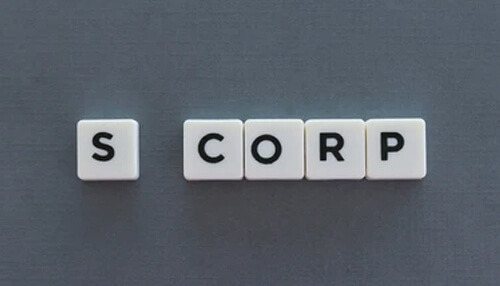Sole Proprietorship vs S-Corp — which one’s right for your business? Most business owners face this dilemma when choosing a legal structure. These two are distinct entities and each has its upsides and downsides, so it’s important to analyze them well.
A Sole Proprietorship is the most popular business entity as it has a simple structure and is easy to set up. Its formation requires minimal formalities and there’s no legal distinction between the business and the owner.
As such, it’s an easy choice for people starting a small business. However, some business owners prefer to have their businesses as separate entities.
For this reason, they opt for other forms of business entities such as LLCs and S-corporations.
So, let’s take a look at the difference between the two.
What is a Sole Proprietorship?
A Sole Proprietorship is a business entity that you own and work for on your terms. Some advantages of having a Sole Proprietorship include:
- A Sole Proprietor is the sole owner and decision maker in the business
- Formation costs are the lowest among all business structures
- Very minimal paperwork is required for set up
- You can run it under your name or file for a DBA (Doing Business As)
However, despite these benefits, having a Sole Proprietorship is not always the best choice.
For one, you do not get protected from your business’s liability as an owner. Therefore, for any debts, lawsuits, or damages, you will be directly responsible. Unless you have liability insurance for your business, you’ll risk losing your personal assets.
Your business’s credibility is also relatively lower compared to S-Corps because Sole Proprietorship isn’t a formal business structure. This means less appeal to lenders and suppliers.
For this reason, an S-Corp may be a better business entity.
What is an S-Corp?
An S-Corporation is a special type of Corporation common among small businesses. It has the structure of a Corporation, with the benefit of liability protection, but exempts you from double taxation.
When forming an S-Corporation, you file Form 2253 with the IRS and are exempted from corporate taxes.
With S-Corps, you can be the sole owner, one of the 100 shareholders, or a manager of your business. Most Sole Proprietorships convert to S-Corps to save on taxes while retaining their Corporation status.
One of the major differences between Sole Proprietorships vs S-Corps is in how they’re taxed.
Here’s everything in detail.
Sole Proprietorship vs S-Corp: Taxation
Sole Proprietorships are subject to self-employment tax. You’ve to declare all your earnings as self-employment income and show it in your personal tax return. As such, Sole Proprietorships have a lower tax deduction compared to S-Corporations.
Self-employment tax includes a 2.9% medicare deduction and a 12.4% social security deduction. This is as opposed to the income tax that S-Corps have to pay, which could range from 10% to as high as 37%.
Tax liability in an S-Corp is transferred to the shareholders who then file form 1120-S, which reports the income, dividends, and losses of company shareholders.
The downside of having a Sole Proprietorship vs S-Corp is that you are not considered an employee of your business in the former. Therefore, the business cannot withhold your income taxes or pay part of the medicare and social security taxes on your behalf.
However, with S-Corporations, you can become an employee of your business and have your business pay you a salary or dividend. This way, you’ll avoid paying self-employment tax and save on the heavy medicare and social security deductions.
Pros and Cons of S-Corps vs Sole Proprietorships
S-Corporations have numerous advantages and disadvantages for small businesses. Here’s a summary of the pros and cons of forming an S-Corp vs Sole Proprietorship.
Pros
- Your business saves money by not paying corporate taxes, which is a significant benefit for small businesses.
- S-Corporation owners can be both shareholders and employees of their businesses. This means they can earn salaries and receive tax-free dividends.
- With S-Corps, your business exists as a separate legal entity. This way your personal assets are protected in case of damages and lawsuits.
- S-Corps have a more formal appeal that helps establish credibility amongst lenders, customers, creditors, and investors.
Cons
- Shareholders have their profits and losses distributed to them based on their percentage of ownership.
- In case of any breach of compliance, the IRS can revoke the subchapter status of an S-Corp, making you lose your benefits.
- S-Corps are complex to form. You’d have to file your Articles of Incorporation with your state and hire a Registered Agent like NW Registered Agent.
- S-Corps are more costly to start than Sole Proprietorships. There are several fees associated with their formation and maintenance including registration fees, and annual reporting fees.
When to Opt for a Sole Proprietorship
Sole Proprietorships are good for:
- Hobbies that turn into businesses
- Businesses that are meant to serve a smaller number of customers, usually friends and family
- Low-risk companies anticipating a minimal financial loss
- Self-financed startups
Ready to Start Your Small Business?
After this Sole Proprietorship vs S-Corp comparison, which one do you think is right for your business?
While Sole Proprietorships are simple and less costly to start, S-Corps set your business up for growth with liability protection owing to them being formal structures. You can also have multiple shareholders in S-Corps.
So, if you’re planning to start a business on a small scale, Sole Proprietorships are the way to go, but if you want to scale it up, you should opt for S-Corps.
Have any questions? Ask them in the comment section below.
——————————————————————————————————
Author Bio:
Brett Shapiro is a co-owner of GovDocFiling. He had an entrepreneurial spirit since he was young. He started GovDocFiling, a simple resource center that takes care of the mundane, yet critical, formation documentation for any new business entity.





